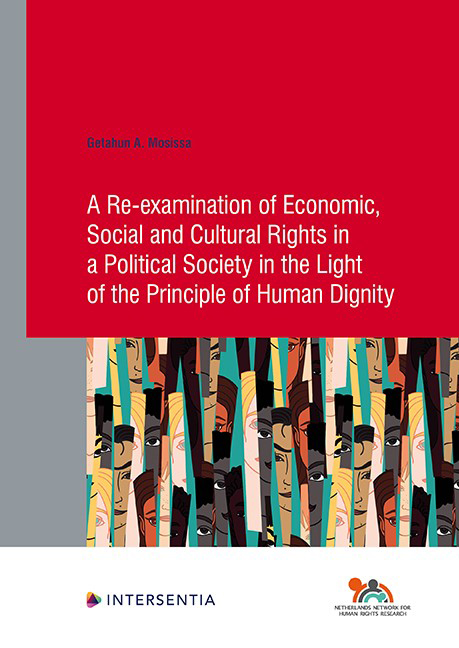Book contents
- Frontmatter
- Acknowledgments
- Dedication
- Contents
- Acronyms
- Chapter 1 General Introduction
- PART ONE THE CONCEPTIONS AND THEORIES OF HUMAN RIGHTS
- PART TWO THE LEGAL OBLIGATIONS OF THE STATE UNDER ESC RIGHTS IN THE LIGHT OF INTERNATIONAL ESC RIGHTS JURISPRUDENCE
- Bibliography
- Samenvatting
- Curriculum Vitae
- Human Rights Research Series
Chapter 1 - General Introduction
Published online by Cambridge University Press: 25 May 2021
- Frontmatter
- Acknowledgments
- Dedication
- Contents
- Acronyms
- Chapter 1 General Introduction
- PART ONE THE CONCEPTIONS AND THEORIES OF HUMAN RIGHTS
- PART TWO THE LEGAL OBLIGATIONS OF THE STATE UNDER ESC RIGHTS IN THE LIGHT OF INTERNATIONAL ESC RIGHTS JURISPRUDENCE
- Bibliography
- Samenvatting
- Curriculum Vitae
- Human Rights Research Series
Summary
HUMAN RIGHTS BEYOND DIVIDE
As seen over the last several decades, the discourse on the nature and implications of ESC rights has been fraught with intense philosophical, political-ideological and cultural and practical controversies. In fact, a close look at academic literature reveals that such important notions as fundamental, basic, inherent, constitutional and negative rights are often employed with the intention to diminish the normative essence and significance of ESC rights as human rights. Although there are major progresses especially with respect to defending the significance of ESC rights using comparative arguments from civil and political rights, the controversy surrounding the normative foundation and practical significance of ESC rights for a given political society has not yet settled. In all this, the central point of contention revolves around two fundamental normative questions: first, whether or not ESC rights could be justified on the same normative (moral) argument and principle as civil and political rights and, second, the normative significance or implications of ESC rights in practice.
In relation to the first question, generally, different authors suggest the principle of autonomy or human dignity as a foundation (justification) of civil and political rights. It is generally accepted that those falling within the category of civil and political rights are considered as rights essentially connected with and hence flowing from the nature of human beings. This is to say that civil and political rights are inherent in or intrinsically associated with the moral fact of being human and hence are regarded as inherent (inalienable, real, fundamental or basic) human rights. But many seriously doubt if this is equally true with respect to ESC rights. Some authors categorically reject the idea that ESC rights are inherent human rights. It is obvious that to say ESC rights are not inherent human rights means they lack the essential character of being real and universal human rights. Thus, for some, ESC rights should best be described as welfare rights or programs for their existence and realisation are essentially the function of (or contingent up on) the nature of the political culture, availability of material resources and the existence of specific government policies to that effect.
- Type
- Chapter
- Information
- Publisher: IntersentiaPrint publication year: 2020

